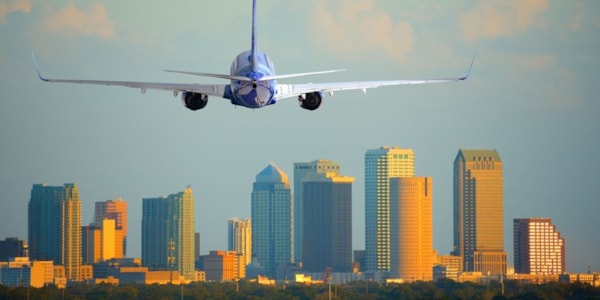FAA wants feedback on its noise policy- how loud will it get?

The FAA has opened up a public comment period on its Noise Policy Review (NPR) in its effort to address aircraft noise. A Federal Register Notice (FRN) was published Friday to garner public attention and comments, with plans to host virtual seminars moving forward.
Individuals, entities and relevant parties have been invited to review four key considerations of the civil aviation noise policy. These key policies include the FAA’s current use of DNL or Day-Night Average Sound Level as the primary noise metric for assessing cumulative aircraft noise exposure. Commenters will be asked to look at the alternative noise metrics that may be used in place of or in addition to DNL to better inform the agency’s decisions and improve the FAA’s disclosure of noise impacts.
Another key item involves a look at the communities understanding of how the noise makes an impact and how to better manage and respond to any community concerns over the noise level. The FAA wants the public to look into the ways it can improve communications on the proposed noise-related agency actions. The data and relevant findings from the ongoing noise research being done, including the Neighborhood Environmental Survey and other research topics related to health impacts, speech interference and economic impacts will be open for public comment and review.
Comments can be submitted to the FRN and/or by attending one of the virtual webinars. These webinars will be hosted on May 16, 18, 23 and 25 over Zoom. These meetings can be participated in through Zoom or watched via the live stream on the FAA’s Youtube channel. Attendees can participate by sending in comments through the chat feature on the platform. The open comment period on the FRN is open May 1- July 31, 2023.

The FAA and other transportation agencies rely on public comments to better inform the rulemaking process. Public comments are requested for many problems and concerns, to better gauge final rulings and issuances. The FAA frequently tests the noise levels at airports and communities are invited to share their experiences to better inform the decision-making process in creating new orders for time restrictions or bans on certain aircraft.
More than 2.3 million passengers fly every day in the U.S. airspace. These aircraft make noise and those in the communities close to airports may hear those operational-related noises daily. The FAA and airports try to accommodate the local communities, often imposing time restrictions or quiet hours to limit the nighttime noise, and some even ban louder aircraft like jets.
RELATED STORIES:
FAA funds 14 universities researching ways to reduce aviation noise
Naples airport conducting first noise study in over 20 years
Noise compatibility program approved at Teterboro Airport
The FAA does its part to ensure the aviation industry and local communities are working together, but the FAA does not control every aspect of daily operations, like flight times, number of operations and the aircraft type departing from or landing at airports. Private industries, airports, government and communities have to play a part in ensuring the separate entities can coincide smoothly.
Since the 1970s, the number of people exposed to a significant amount of aircraft noise has declined from about seven million to just over 400,000 today. While this number has greatly declined, the number of enplanements has increased from 200 million in 1975 to over 850 million today.
In the last few decades, aircraft have become quieter, in part due to work by the FAA in addressing the concern over aircraft noise. Older, noisier aircraft are being phased out or retrofitted with new technology to muffle some of the noise emitted. As operations increase, the FAA is staying ahead of the possibility of increased noise and ensuring that the aviation industry and the public each do their part to keep the noise at bay while still enhancing a flourishing industry.
Contact
Name: Haley Davoren
, Digital Content Manager
Company: GlobalAir.com
Website: https://globalair.com
Email: [email protected]
Phone: 502-456-3934
©2023 GlobalAir.com, Haley Davoren. All rights reserved.

Recent Comments